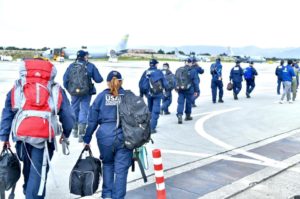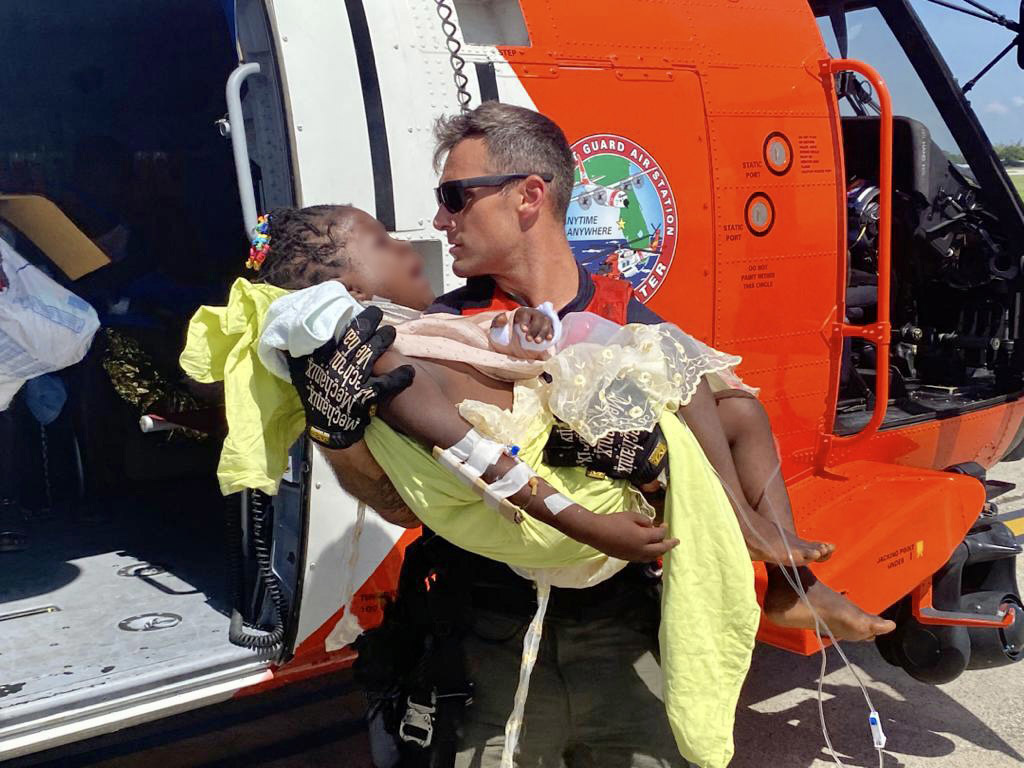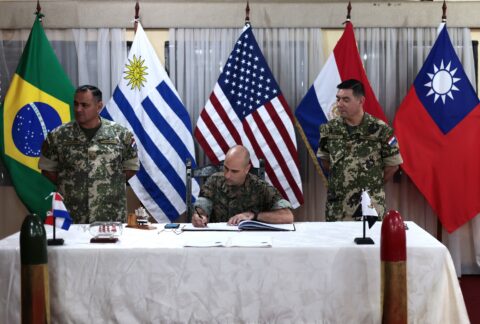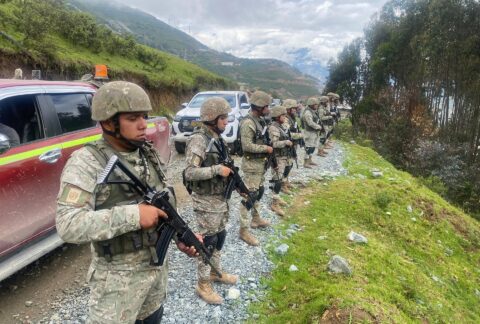The United States military mobilized search and rescue teams following the 7.2 magnitude earthquake that killed nearly 2,000 people in Haiti on August 14.
U.S. Southern Command (SOUTHCOM) created Joint Task Force-Haiti to support the U.S. Agency for International Development- (USAID) led mission.
On August 18, the U.S. Navy amphibious transport dock USS Arlington (LPD 24) set sail for Haiti with a surgical team and a landing craft on board. In addition, eight military helicopters from Joint Task Force Bravo in Honduras flew to the disaster area to provide critical airlift in support of USAID.

Colombia, Chile, Argentina
Other countries in the Americas are also sending aid to Haiti.
“Last night [August 15] two Colombian Air Force planes left with the USARCOL1 multitasking team, including 30 professionals, two canines, and 18 tons of specialized search and rescue equipment and a medical component,” Colombian President Iván Duque said on Facebook.
Chilean President Sebastián Piñera sent more than 16 tons of humanitarian assistance on a Chilean Air Force aircraft. The aid includes medicines, hygiene items, 11,000 liters of water, and food baskets containing flour, sugar, noodles, rice, tea, tuna, chickpeas, powdered milk, coffee, and other staples, the Chilean Ministry of Foreign Affairs reported.
“We Chileans know what earthquake devastation means and what it means in terms of suffering and pain for the people who have to experience these adversities,” President Piñera said. “So we have all the reasons in the world to accompany, support, and help the Haitian people in these moments of such pain and anguish,” Piñera added.
Chile will also provide air transport to Costa Rica and Panama, so that they can send resources to Haiti.
For its part, the Argentine Ministry of Foreign Affairs, International Trade and Worship reported that it “is taking steps to coordinate the transfer of White Helmets Commission personnel to Haiti.”
The goal is “to deliver health care and provide volunteers to manage shelters, while maintaining constant communication with the Pan American Health Organization to be aware of the health needs during the emergency,” the Argentine Foreign Ministry said.









